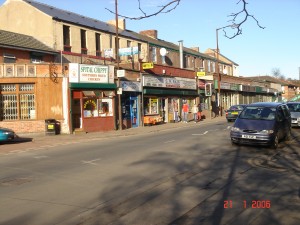A Case Against Altruism
Some people find they are able to practice altruism, at least on occasion. I suppose soldiers on the battlefield are altruistic. The problem is you cannot build a society on altruism.
You may have gathered I am a theologian and apologies to those who are not religious but I want to show how the roots of my views about self-interest and altruism are in the deep past. It’s what people have believed for thousands of years. Some people will remember words from the Christian New Testament: “We ought to lay down our lives for one another” (1 John 3:16, NRSV). This is something religious people aspire to but it is not the main thrust of Jesus’ teaching or indeed of other religious traditions.
In various places Jesus teaches the second commandment, “You shall love your Neighbour as yourself” (eg Mark 12:31, NRSV). I remember Mrs Hayes, my teacher at Junior School, who told us that with the first commandment this means we must love God first, other people second and ourselves third. We are permitted to love ourselves it seems but third.
This is of course nonsense. The second commandment is about mutuality. Remember mutuality is understanding that when I work for the benefit of others I benefit myself. The point Jesus makes in this second commandment is not that I come third but I am one of the neighbours I love. From God’s perspective we’re all the same. There’s no third tier of love occupied solely by me!
The word used to describe this love is self-interest. It is the basic value underlying mutuality. Maybe sometimes altruism, giving of my entire self for the benefit of others is important. It makes for inspiring stories but in the regular day-to-day world it is self-interest that benefits all. It is not the same thing as greed.
Greed is where the powerful act solely in their own interests without accountability. Listen for it in the mouths of politicians and directors of industry. They genuinely believe taxation is evil, that supporting the weak through the state is a waste of money, that deregulation benefits the economy …
But pure altruism has its down-side. You can’t build a society on it, unless you need soldiers to fight wars. Here are some of the issues:
- Self-interest is motivational. It is incredibly difficult to keep going solely for the benefit of others. The mother who feeds her children and other children in the neighbourhood is participating in a wider economy of child feeding. Motivation becomes an issue only where a mother fails to feed for reasons other than extreme scarcity.
- There is pleasure in seeing others benefit from my good fortune. This is why we throw parties. Celebrations make sure people know about our good fortune and can share in it. The self-interested person cares about their friends and neighbours and they benefit from those who care for them. These can be seen as obligations but they are only obligations where someone is keeping score. The landlord, the loan shark, the benefits office and the tax collector tend not to be a part of this mutual system. I’m not saying they’re necessarily illegitimate (I think taxes fairly calculated should be paid for example) but we know when we’re in a non-mutual relationship.
- Altruism is based on a hidden calculation. I am altruistic when I do not benefit at all. I suppose if I lay down my life for a friend that is proof of my altruism but there is a score card being marked with a fat zero when we talk about altruism. Mostly in my transactions with my neighbours I do and should benefit and so should they. It’s making a contribution to general well-being.
- How are you going to make a living if you aspire to be 100% altruistic? I don’t believe it can be done. And you can never repay to society everything you have received. Religious people thank God for what they receive because they know it is more than they can possibly calculate, let alone repay. And really what are you going to repay with? Whatever it is, you got it from somewhere.
The local economy is where we act out our commitment to the values of self-interest. In a disadvantaged local economy, our opportunities to act out of self-interest are limited. When it thrives we are able to collaborate and increase general wealth.
Those who tell us that the economy is essentially competitive are not participating in the economy. They are predators in sheep’s clothing who do not care for the benefit of all.
So, self-interest is a core value but there is another one, about which I shall write next Monday.
If you enjoyed this post, you can sign up to my email list at the top of the right-hand column. You will receive a weekly summary of my posts, an email sequence about community development and occasional emails about community development online.

